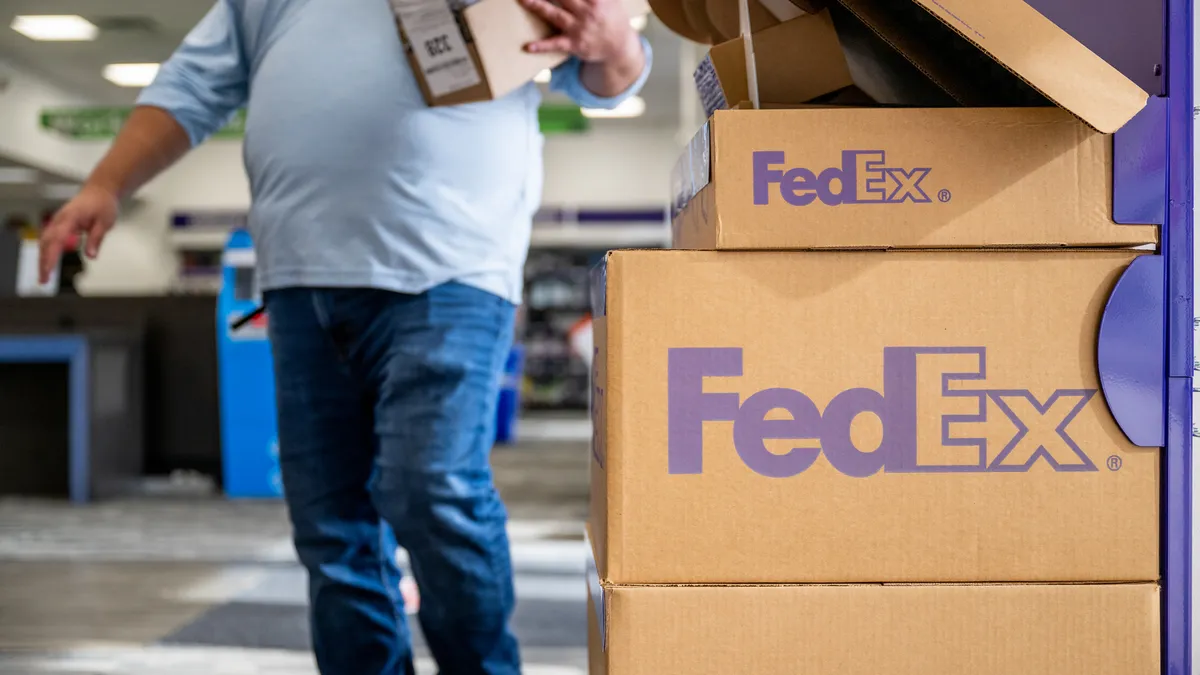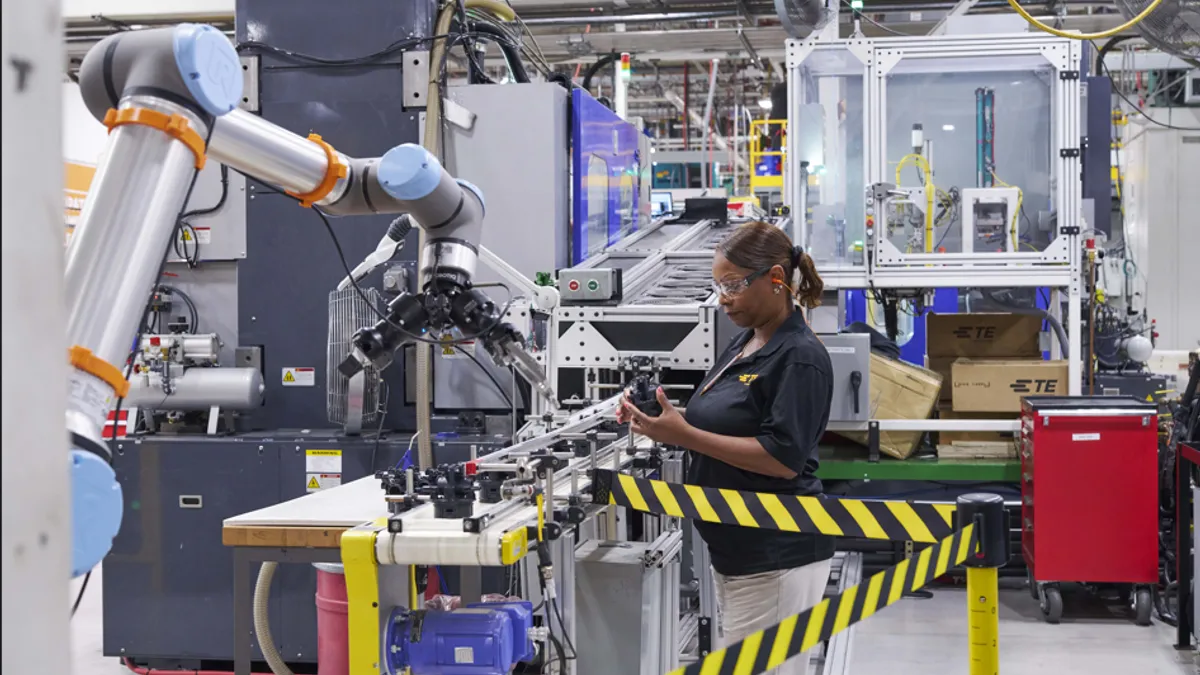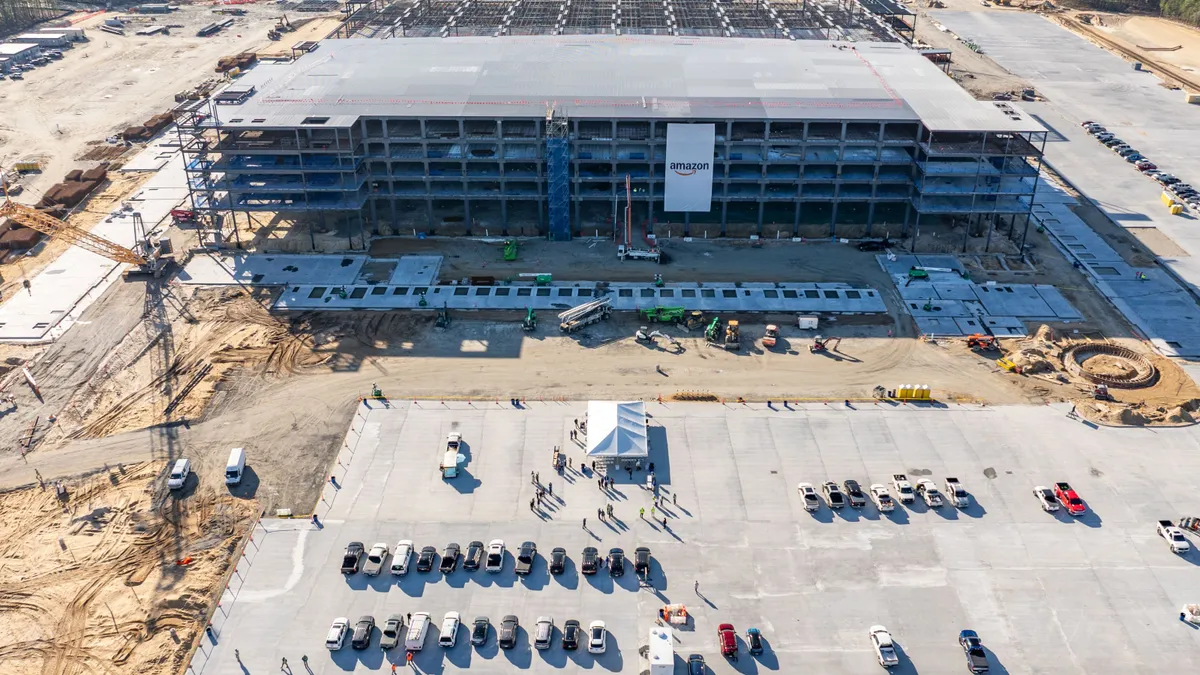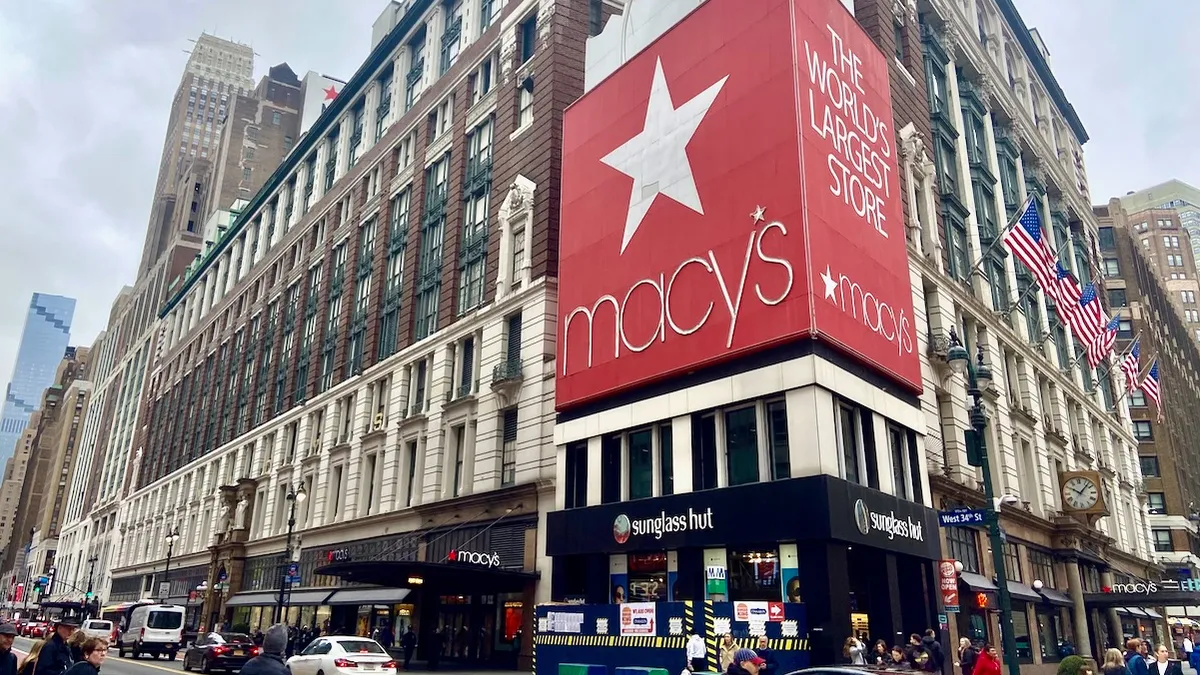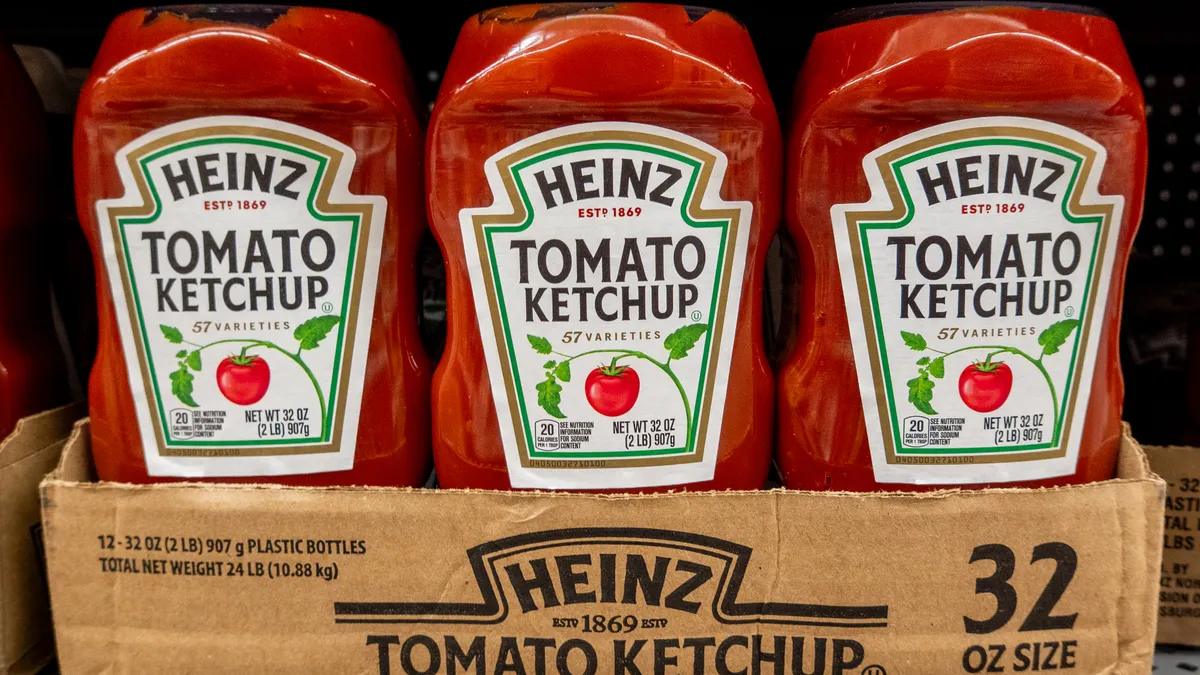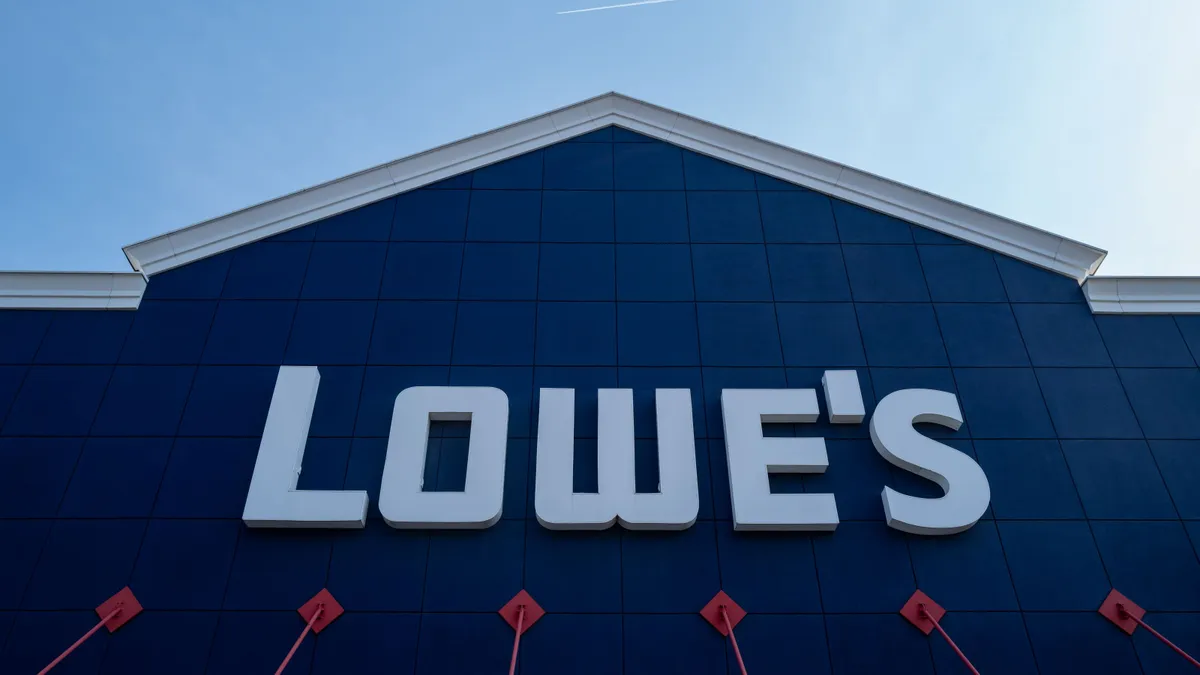FedEx is looking to make a name for itself in the e-commerce world by doing more than delivering packages.
In January, the shipping giant announced a digital platform offering end-to-end solutions for online merchants. The platform, called fdx, brings together a mix of existing and new FedEx services that aim to help businesses grow demand, optimize fulfillment and streamline the order returns process. It's currently available in private preview, with an official launch slated for the fall.
What fdx offers
| Capability | FedEx’s description |
|---|---|
| Grow consumer demand | “Connect with high-value customers through the ShopRunner member network.” |
| Increase shopper conversion | “Share estimated delivery dates and time window updates throughout the shopping experience – on product pages, in cart, and at checkout to increase delivery transparency and encourage conversion.” |
| Improve shipment visibility and control | “See shipments in near real time to make informed decisions and manage risk through FedEx Surround.” |
| Understand carbon emissions impact | “Access detailed carbon emissions data through FedEx Sustainability Insights to help make more sustainable supply chain decisions.” |
| Streamline returns | “Streamline, configure, and manage digital front-end return experiences, data exchange, and physical transportation for returns in one platform.” |
| Optimize order fulfillment* | “Integrate real-time FedEx network insights into order management systems. This will help surface optimal shipping routes and speeds for more efficient, cost-effective deliveries.” |
| Customize the post-purchase experience* | “Match brand standards from order tracking to returns. This capability will provide transparency with delivery dates and accurate shipment updates.” |
*Functions that will be available as part of fdx's official launch in the fall.
Some e-commerce experts are skeptical that the services will make a notable impact in the industry. But so far, FedEx has seen "a pretty strong pipeline of interest" for the new platform, said Scott Rogers, vice president of core capabilities at FedEx Dataworks, in an interview with Supply Chain Dive.
The platform leverages information derived from the 15 million packages FedEx moves daily along with the company's improving machine learning capabilities. This allows FedEx to calculate when a package should arrive, the probability of a delivery delay and other key data points to share with shippers, Rogers said.
One of the platform's core components is an engine that pairs a businesses' inventory location, order data and product information with shipping insights derived from FedEx's network, such as congested transportation lanes or adverse weather conditions. This helps a business make a more informed choice on the most effective way to ship to a customer at that time, rather than just predicting a two-day delivery timeframe because a two-day shipping service was selected.
"Tell us what promise you're trying to meet, tell us where the inventory's at, and let us give you the best recommendation on how to use our network at that time when you're making a fulfillment decision," Rogers said.
Can fdx work with Amazon, Shopify?
Making it easy for businesses to onboard with and start using fdx is a priority, Rogers said, as this will help customers of all sizes tap into its capabilities. The platform integrates with storefronts and order management systems that merchants frequently interact with.
"If you're selling on the Shopify ecosystem, then you may have some interoperability between Shopify and the [fdx] platform," Rogers said.
The platform offers a mix of capabilities that extend beyond shipping insights.
One example is its ability to connect businesses with millions of consumers that are part of FedEx's ShopRunner membership program to increase demand, Rogers said. ShopRunner, acquired by FedEx in 2020, offers shoppers perks like free two-day shipping.
"We use our reach to consumers and our access to brands to bring them together in the ShopRunner experience since we've acquired them," Rogers said.
The platform also aims to help businesses streamline and customize their returns process. They may set up a returns policy through the platform, which could include determining product eligibility and what level of automation to include when it comes to approving returns.
But fdx doesn't integrate with every big e-commerce player yet. Rogers said FedEx hasn't "gone deep into what integrations will be built out yet" for Amazon.
"I don't really have a timeline or even a position on the Amazon integration at this point," he added.

'A multi-year journey' for fdx
While FedEx can offer in-depth insights for deliveries within its own network via fdx, the company is still exploring how it can apply the platform's delivery predictions, order tracking and other features to shipments made through other delivery providers as well, Rogers said.
"Our intent is to be relevant in the multi-carrier world for our customers," Rogers said.
Offering multi-carrier capabilities, a future Rogers hinted at, would garner much more interest for fdx than a single-carrier offering, said Rick Watson, founder and CEO of RMW Commerce Consulting.
While the services offered through fdx are useful for merchants, being attached to a single carrier in FedEx rather than having multi-carrier functionality will limit its value to most businesses, Watson said. It would likely only be useful for two groups, he added: Small merchants using only FedEx, and large businesses "that have really gone all-in on FedEx."
Even if fdx eventually offers multi-carrier capabilities, Watson said many companies already offer comparable services that can cooperate with a variety of delivery providers.
"Each one of the things they mentioned has five or six companies that do that thing already, sometimes for very cheap," Watson said.
But the platform remaining tied only to FedEx's delivery network may present some upside to the company, said Derek Lossing, a former Amazon Logistics leader who is now the founder and principal advisor of Cirrus Global Advisors. If shippers find fdx useful, it will give them an added reason to keep using FedEx for deliveries in an era where technology companies have made it easier to shift volume between providers.
"The switching costs between UPS, FedEx and OnTrac are pretty low," Lossing said. "I think what FedEx is trying to do here is develop some value-add solutions that make their delivery services a little more sticky."
Still, Lossing said it will take time for the fdx platform to attract customers, as has been the case with similar e-commerce solutions in the market.
"This is going to be a multi-year journey," Lossing said. "It will really come down to how they think about retaining customers and their investment in some of these solutions, because it's hard at times to monetize them."



